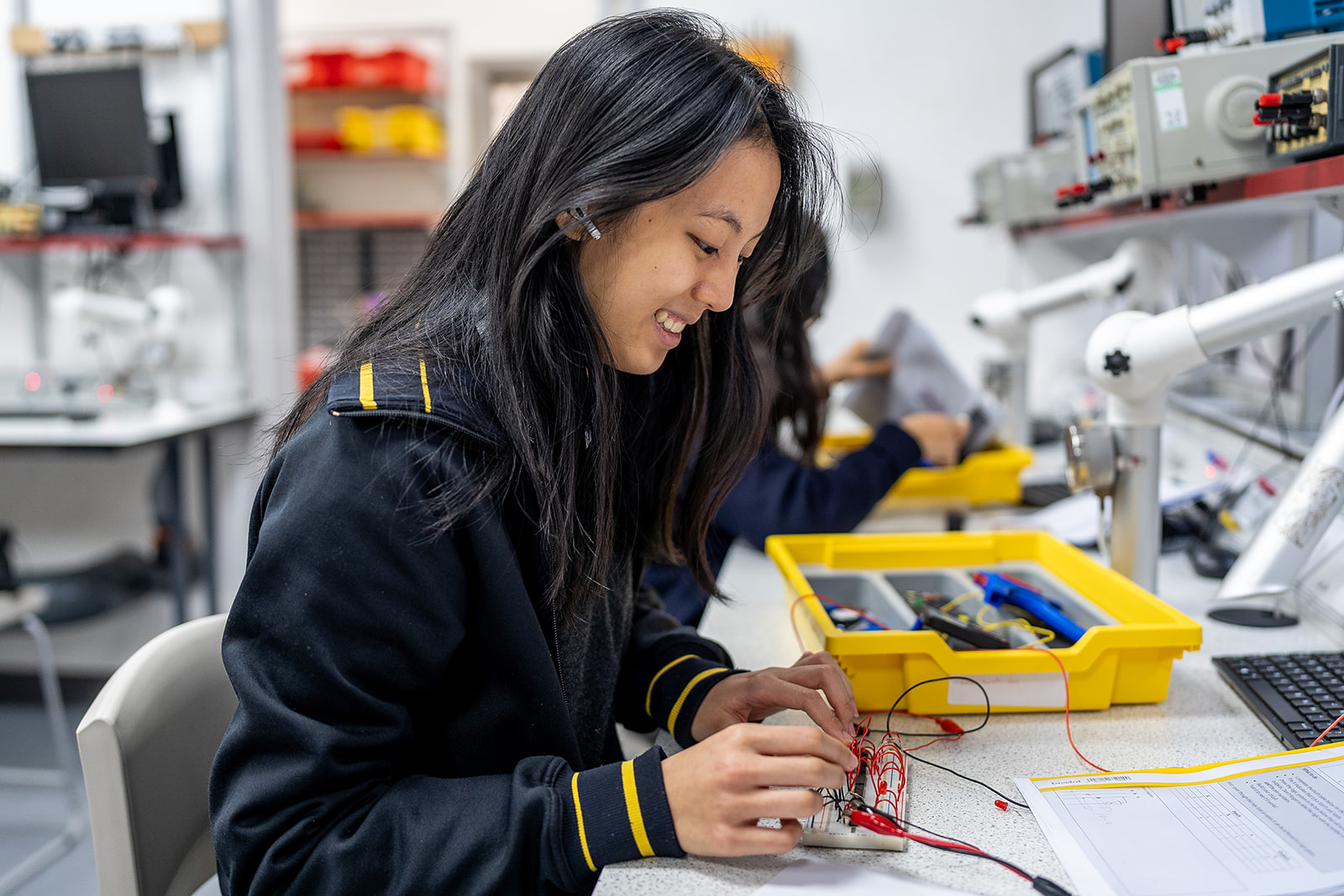The Fifth Form (Year 9) course aims to allow pupils to develop and sustain their own innovation, creativity, and Electronics capability.
The programme of study contains three main focus tasks, undertaken in each of the three termly subject rotations during the course of the year. These include a major soldering project, where pupils will ‘take home’ a physical, working electronic circuit. They learn to design electronic circuits using Circuit Wizard software, which allows them to simulate, test, fault find and evaluate practical circuits. Finally, they learn to build circuits on prototype breadboards, where they can see their designs fully realised.
The GCSE course is designed to provide pupils with a curriculum that is not only concerned with the pursuit of knowledge for its own sake but also relates the theories and concepts to everyday experiences. Thus, Electronics is made personal to the individual, its relevance is highlighted and a sense of responsibility to the world around them is developed.
Above all our aim is to make Electronics as satisfying and enjoyable as possible and to promote a sense of wonder in the subject.
In the Lower Shell (Year 10), all pupils follow a structured course of practical work, exploring the specification topics, through carefully written project sheets. These sheets also detail the theoretical knowledge required for the end-of-course assessments. They are supported by departmentally developed videos to address any gaps in understanding or future revision requirements.
In the Upper Shell (Year 11), assessment is through two written examinations (Discovering Electronics and Application of Electronics) and one major coursework piece, an extended system design and realisation task to assess electronics skills.
Electronics course topics include: electronic systems and sub-systems; circuit concepts; resistive components in circuits; switching circuits; applications of diodes; combinational logic systems; operational amplifiers; timing circuits; sequential systems; interfacing digital to analogue circuits; and control circuits.
The Eduqas A Level in Electronics provides a broad, coherent, satisfying, and worthwhile course of study. It encourages pupils to develop confidence in, and a positive attitude towards, Electronics and to recognise its importance in their own lives and in today’s technological society. The course is designed to ensure that pupils have the electronic and mathematical knowledge, and the electronic engineering skills to solve problems. Pupils will learn to appreciate how many challenges in society can be tackled by the application of scientific ideas in the field of Electronics, using engineering processes. The practical work enables learners to appreciate the theoretical knowledge required within the specification through a hands-on context.
At both AS Level and A Level, the course is a mix of theory and practical application sessions, although there is a strong emphasis on understanding the theory by the building of practical circuits. Assessment at AS Level requires each pupil to complete three coursework projects in programming, digital systems and analogue systems, as well as a written exam (principles of Electronics) at the end of the Sixth Form (Year 12). AS Electronics is taken as a fifth subject in the School’s Options Programme and any pupil who wishes may take the course. Commitment is initially to the AS course, which is completed in the Sixth Form, although many pupils choose to continue to study the A2 course in the Remove (Year 13).
In the Remove, assessment is through two written examinations (principles of Electronics and application of Electronics) and two coursework tasks (an integrated design and realisation task and a design and program task to create a microcontroller system).
Electronics course topics include: electronic system synthesis; DC electrical circuits; input and output subsystems; energy and power; semiconductor components; logic systems; operational amplifiers; timing circuits; sequential logic systems; microcontrollers; mains power supply systems; signal conversion; AC circuits and passive filters; communications systems; wireless transmission; instrumentation systems; optical communication; high power switching systems; and audio systems.
Syllabus & Code
Eduqas AS Level B490QS Electronics / Eduqas A Level A490QS Electronics

